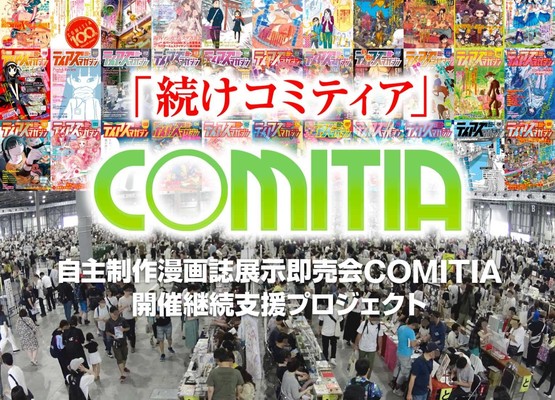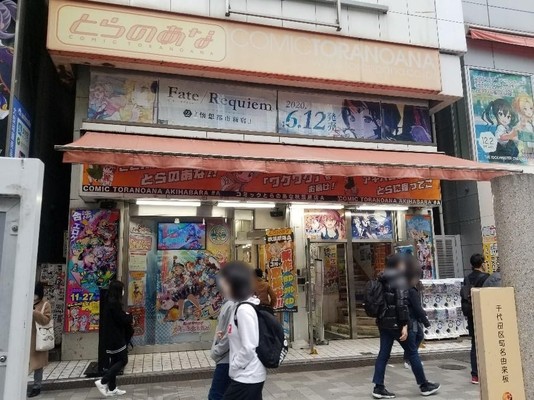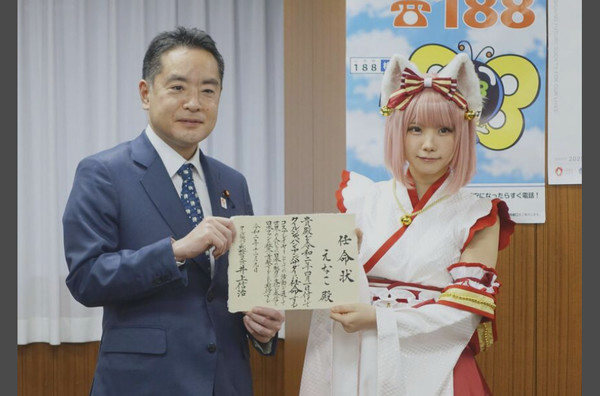Derivative Content and Property Rights: How Does Fanfiction Work in the Anime and Manga Industry?
by Takumi Furusato,The last year has been a nightmare for Japanese doujin (fanfiction) creators. Because of the COVID-19 pandemic, 2020 is remembered as the first year in the last 45 to not have a Comiket event. In addition, a number of otaku events were postponed, and some of them were even canceled. According to a survey by Ryokuyousha, a printing company which is well-known among doujin creators, 50.1% of the respondents admit that they have lost creative urge.
Meanwhile, some doujin events, organizers and creators are trying to survive through various measures. COMITIA, a quarterly doujinshi convention specialized in original titles, organized a crowdfunding project to compensate for their huge revenue loss in 2020. According to the announcement, the gross margin in 2020 decreased by 60M yen (572K USD) compared to 2019. Fortunately, the crowdfunding project was a huge success with 150M yen (1.4M USD) collected from 12,000 supporters. Also interesting is the case of Masaya Wakakusa, a doujin creator who applied for the support program provided by Japan's Agency for Cultural Affairs; Wakakusa's application was approved by the governmental organization even though he mainly worked on R-18 adult doujin games.

Complicated History Between Doujin and Manga
If you were to go to a doujinshi shop in Akihabara or Ikebukuro now, you will still be able to find various titles despite the pandemic. Some of the best-selling doujinshi are based on existing properties such as popular manga, anime, and games; needless to say, the contents and characters of these source materials are protected by copyright. The question of how doujin creators deal with legal issues has been an elephant In the Room for many years. Since the doujin community has for years been producing many talented artists, copyright holders – including publishing companies, editors, and content creators – tend to avoid lawsuits or making official statements on the matter. They prefer to involve the doujin community in their businesses to maximize the market for their content rather than eliminate them, not to mention how unrealistic it is to check all of their titles for copyright infringement. This tolerance for doujinshi seems to be shared among rights holders of anime and game properties too. In an annual meeting between stockholders in 2010, Satoru Iwata, CEO of Nintendo, commented “On the one hand, we don't overlook the matters which could be harmful on our property rights. But on the other hand, we don't think that prohibition against all fan-made creation is the best solution. This topic is so complicated that we can't draw a fine line and make the regulation clear.” It is still fresh in our memories how Bowsette dominated fan communities all over the world in 2018, including Japan. Even though plenty of doujinshi about her were published, Nintendo kept silent on the matter.

An Adverse Effect of A Growing Market
However, the rapid growth of the doujin market and its popularity is bringing controversy to its continued existence. The first Comiket in 1975 had only 750 visitors; in 2019, it had 750,000. Incidentally, it is quite difficult to estimate how big the doujin market is. According to data from the Yano research institute, the size of the doujinshi market is around 85.5B yen (810M USD). However, since this figure is only based on a questionnaire survey for people who consider themselves as otaku consumers, it does not accurately represent the size of the doujin market. Nevertheless, considering that the size of the entire Japanese manga market is estimated to be 498B yen (4.8B USD), it is obvious how important the role doujinshi plays in the Japanese manga market. Along with the growth of the community, many groups started to release not only doujinshi but also various items such as collectible figures, apparel, plush dolls, body pillow covers, and other merchandise as doujin work. Different from doujinshi, these items are much more expensive and therefore their sales are too much for property rights holders to ignore. Some of them realized that they need a “written rule” for the use of their contents for doujin activities. Studio Actas, a production studio of Girls und Panzer, tweeted several times to warn against the sale of unauthorized products on online shops and exhibitions. GuP has collaborated with various companies and organizations, including the local government of Ooarai-cho, Ibaraki prefecture, and thus the management of their copyright is quite important for their brand. In another case, Nitroplus, a character design agency, created guidelines for the terms of use of their properties, placing a limit on the production amount (200 pieces at most) and expected sales (100K yen at most) of doujin work. Interestingly, Nitroplus created a different set of criteria for doujinshi. The agency didn't ask doujinshi creators to put any limitations on their works; on the contrary, they clearly announced that they will support derivative work by fans.
Globalization of Otaku Culture and the TPP
Along with the growth of otaku culture, the Japanese government has gradually realized its potential and considered using it as diplomatic policy. In December 2020, a popular professional cosplayer, Enako, was assigned as an ambassador for the "Cool Japan" government initiative.

Since then, she has tweeted several times about property rights on SNS. One tweet read “I'm wearing only original costumes for business, and taking authorization from rights holders when I put on the ones of Anime, Manga and Game characters”. The context for her comment is that cosplay remains a controversial issue for legal authorities. Prior to her assignment, Shinji Inoue, minister of state and the one in charge of the “Cool Japan” strategy, mentioned the necessity of legislation allowing for cosplay on some occasions, such as uploading selfies on SNS and joining events for a reward, because they could otherwise be a violation of property rights. It is interesting that one of the cabinet members working for foreign operation administration in culture is the one who brought this up. As mentioned above, the legal standing point of doujin work in Japan is quite unique comparing with other countries: as long as the doujin creators and performers are following the “unwritten rule”, their activities have been overlooked, at least so far. However, they could face difficulties in the near future with the globalization of the doujin market. Different from the Japanese legal system, copyright infringement under the Trans-Pacific Partnership Agreement (TPP) doesn't require a complaint from the victim for prosecution in principle. Consequently, the risk for doujinshi authors and cosplayers could be much higher even if the rights holder wants to tolerate them.
Looking ahead to the future, some in the doujin community have begun discussions for an appropriate solution. Ken Akamatsu, the author of UQ HOLDER! and Negima! Magister Negi Magi has been working for the development of the doujin community even after he became a professional manga creator. Akamatsu and other activists created the Doujin Mark License and released it in 2013. This is a proof of authorization from the original creator that allows the property to be used in the creation and distribution of doujin works. Another idea Akamatsu brought to the public is for exhibitors to pay an additional one-day license fee to rights holders at doujinshi events. This is the same system employed by Wonder Festival, which is one of the biggest events focusing on collectible figures and scale models. “It will be a big step for globalization of Japanese doujin culture if it wokrs” Akamatsu said.

Decades ago, Japanese game, anime, and publishing companies focused only on the domestic market. However, the internet allowed fans from all over the world to enjoy their products at the same time. Today, tens of thousands of people discuss their favorite Japanese titles and fictional characters on internet forums and social media. As the market grows, a new relationship that mutually benefits content providers, fans, and doujin creators is needed.
Takumi Furusato is the COO and researcher of Ludimus, a Japan-based consulting firm for partners in the media industry that collects information related to entertainment content from all over the world, including developing countries.
discuss this in the forum (12 posts) |